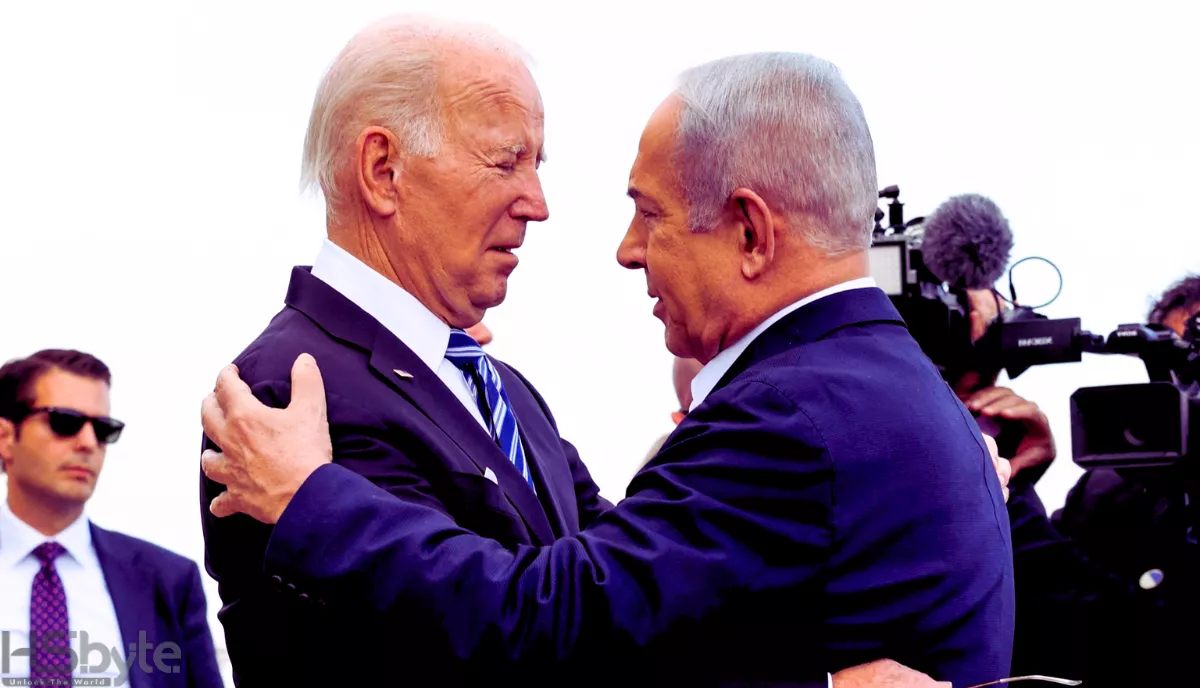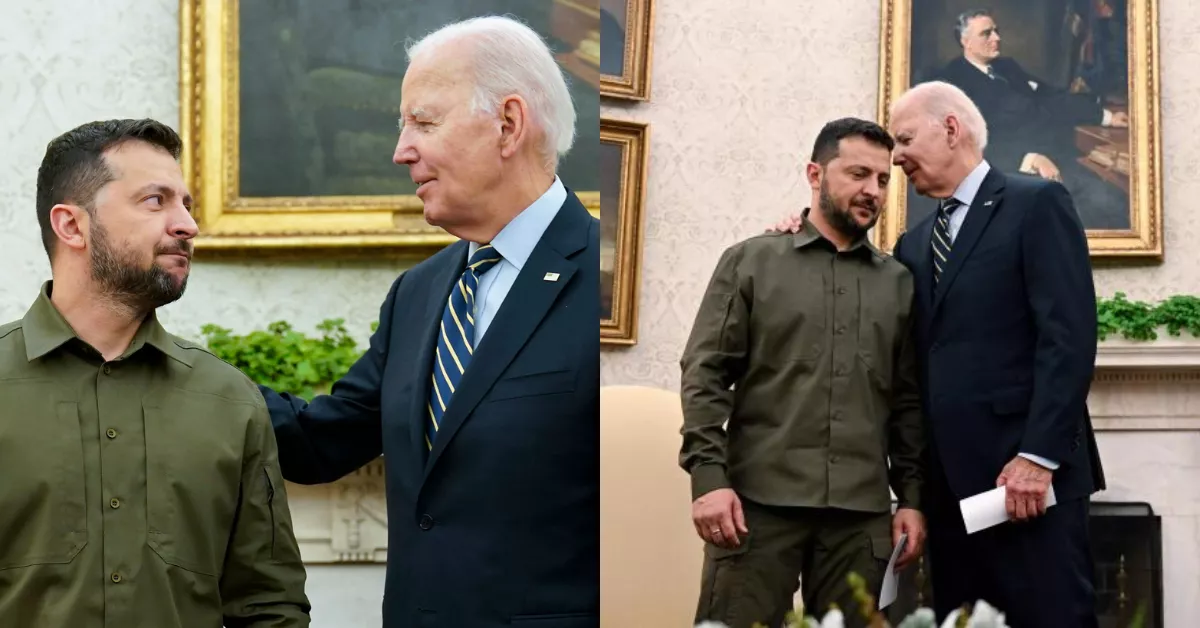
- Category: Middle East, News

- Share
Biden’s Diplomatic Push in Israel During War Sparks Controversy
A year ago, in the wake of the October 7 attacks, Joe Biden became the first US president to visit Israel during wartime. After meeting with Israeli Prime Minister Benjamin Netanyahu and his war cabinet in Tel Aviv, Biden delivered a clear message: “You are not alone.” Yet, he also urged Israel not to repeat the mistakes of an “enraged” America after 9/11. Biden’s visit and the evolving US diplomacy have played a pivotal role in shaping the conflict’s trajectory.
Fast forward to September this year, and Biden was at the United Nations urging restraint between Israel and Hezbollah. However, in a significant escalation, Israeli fighter jets targeted southern Beirut, killing Hezbollah leader Hassan Nasrallah with American-supplied bombs. This strike, one of the most pivotal moments since Hamas launched its attack on October 7, highlighted the tense relationship between US diplomacy and the increasing military conflict.
A Year of Diplomatic Struggles
For the past year, Biden’s chief diplomatic goal has been securing a ceasefire for the release of hostages held by Hamas in Gaza. With over 1,200 Israeli civilians killed in the initial Hamas attack and 42,000 Palestinians killed in Israel’s retaliatory offensive, the stakes are immense. Amid the devastation in Gaza, humanitarian concerns have grown, with aid organizations accusing Israel of blocking crucial supplies, a claim denied by the Israeli government.
Despite extensive diplomatic efforts, the conflict has spread beyond Gaza, with Iran retaliating for Nasrallah’s death by firing missiles at Israel. In Lebanon, the situation remains volatile, with cross-border tensions threatening to ignite a broader war.
Wins and Losses of US Diplomacy
Biden’s administration has walked a fine line, attempting to support Israel while also pushing for restraint. Secretary of State Antony Blinken has been at the forefront of these efforts, making multiple trips to the region to broker a ceasefire. However, these efforts have often fallen short. On a recent trip to Doha, Blinken’s talks with Qatari officials failed to move negotiations forward, further frustrating US attempts at diplomacy.
Biden has faced internal resistance, both from Republicans in Washington and from Netanyahu’s far-right coalition, which has blocked multiple ceasefire proposals. Netanyahu’s government remains committed to a hardline military response, often sabotaging diplomatic efforts to negotiate a truce.
A Question of Leverage
Critics argue that US diplomacy has been superficial, pointing out the contradiction between calling for restraint while supplying Israel with billions of dollars in military aid. Some former officials, like Harrison J. Mann, have even resigned in protest over the civilian casualties resulting from US-supplied weapons.
However, Biden loyalists defend his approach, citing last year’s truce between Israel and Hamas, which resulted in the release of over 100 hostages. They also argue that US pressure helped prevent a broader Israeli invasion of Lebanon, despite the escalating rocket fire from Hezbollah.
Former Israeli Prime Minister Ehud Olmert has praised Biden’s support, noting the unprecedented US military deployment in the region, which included aircraft carrier strike groups and a nuclear submarine. But even Olmert admits that Netanyahu’s reluctance to engage with US diplomacy, compounded by the influence of ultranationalists in his cabinet, has been a significant stumbling block to any ceasefire deal.
As the conflict continues to escalate, Biden’s diplomacy will likely face further tests. With Kamala Harris poised to succeed him as the Democratic candidate in the upcoming presidential election, it remains to be seen whether the US will alter its approach to the conflict or continue on its current path.
For now, Biden’s efforts to defuse the Israel-Gaza war seem far from achieving a lasting peace, with diplomacy repeatedly overshadowed by the harsh realities of war and political resistance.
You May Also Like


Israeli Hostage Couple Reunited After 738 Days

Raila Odinga Dies at 80: Kenya Mourns Political Giant

Trump Demands Hamas Disarm Amid Brutal Gaza Crackdown

Israeli Strikes on Iran Heighten Tensions

UNIFIL Post Breached: Israeli Tanks Escalate Tensions
Latest Update

Zelensky Biden Meeting Ignites Republican Outrage Amid Aid Talks

Wuthering Heights Film Casting: Controversy Sparks Debate

Will the US Presidential Election Shape the Future of Crypto?

War with Russia: Zelensky Sees Hope for Peace

Unpacking the ‘Dark Arts’ in Manchester City vs Arsenal Showdown

UNIFIL Post Breached: Israeli Tanks Escalate Tensions

Trump Demands Hamas Disarm Amid Brutal Gaza Crackdown

